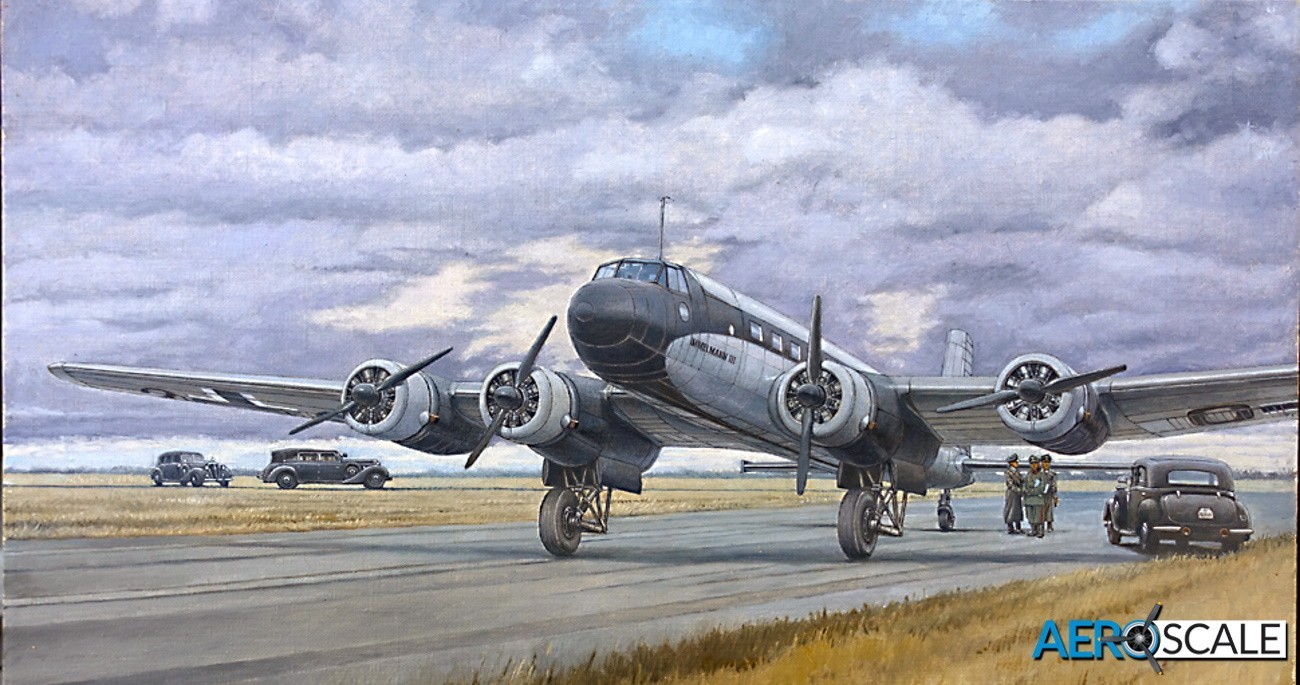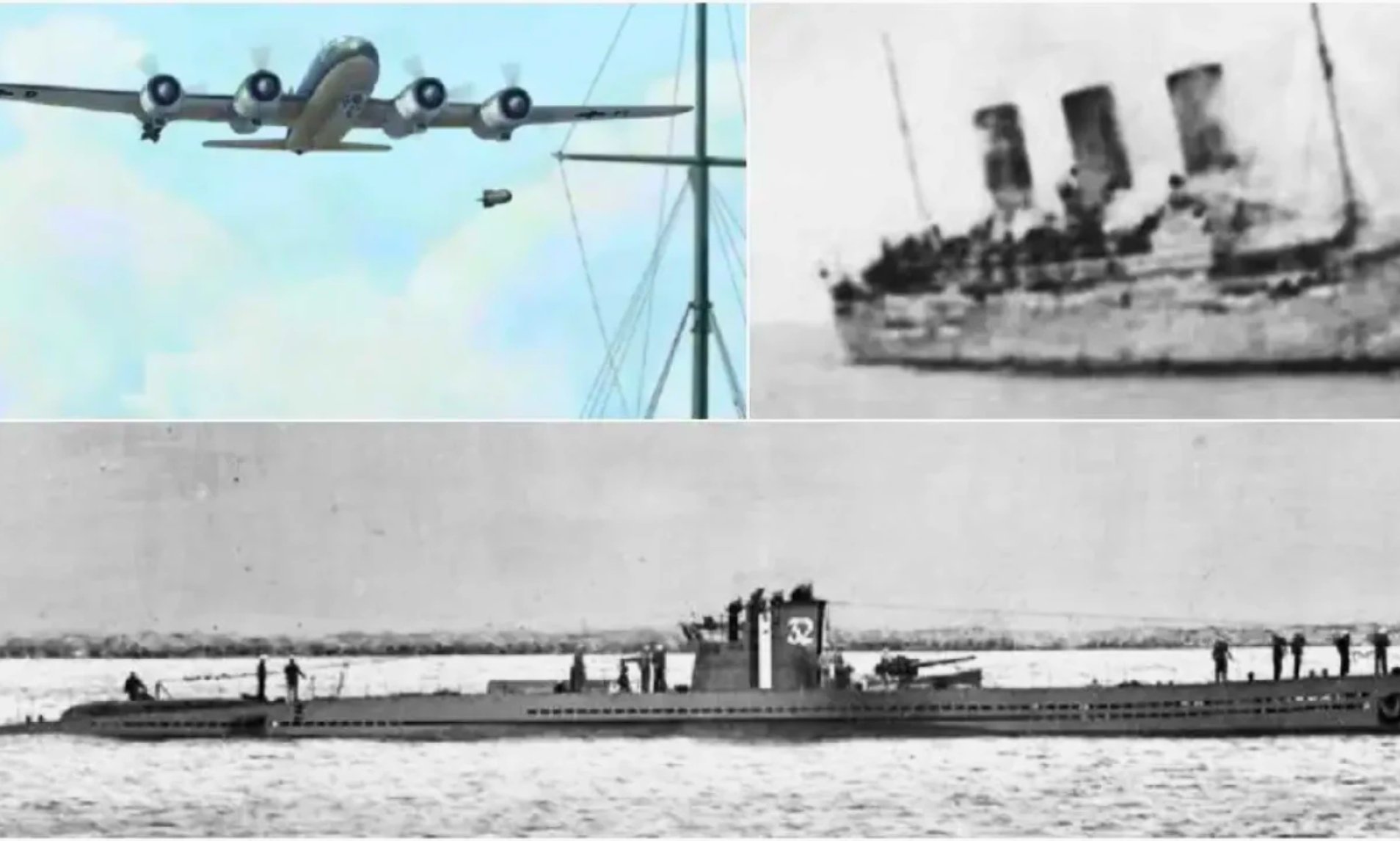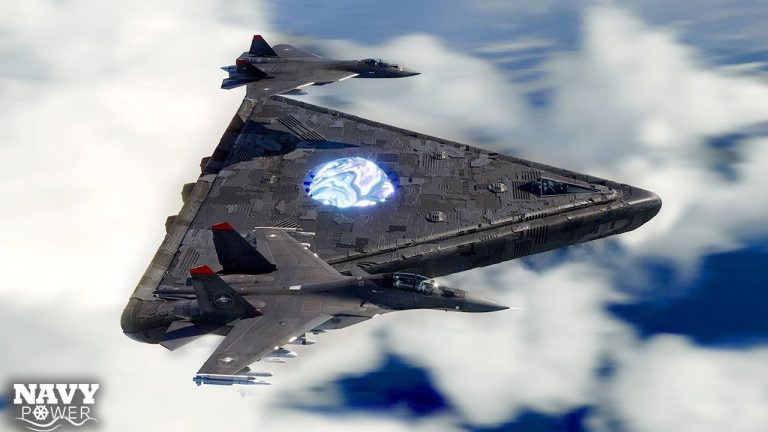Focke Wulf Fw 200
The Focke Wulf Fw 200 Condor first made an appearance over Norway in April 1940, flying with the unit that eventually become synonymous with it – Kampfgeschwader 40 (I/KG40).

As the war in the west progressed, and German forces advanced, French airfields opened up, allowing the Condor to fly around the UK and out into the Atlantic, where it rapidly established itself as one of the key menaces to Allied shipping. Able to attack shipping directly, or able to guide U-Boats to their prey the Condor scored its first major success when it crippled the liner Empress of Britain.

Crippling the liner Empress of Britain
As told by Mark Stille in his book Battle of the Atlantic (1), The U-Boat Campaign against Britain, 1939–41, beginning in 1940, German Fw 200 Condor long‑range reconnaissance bombers from I/KG40 operated over the waters west of Britain.

On Oct 26, a Condor flown by Bernhard Jope encountered the passenger liner Empress of Britain 70nm north‑west of Ireland. At 42,348 GRT, the Empress of Britain was Britain’s second-largest ship and the tenth-largest merchant ship in the world.
Jope spotted a very large ship through the clouds and changed course to make a low‑level attack from astern. In the first attack run from about 650ft, he dropped a single 551lb bomb which hit the ship port side and started a fire. Jope made a wide turn to make another stern attack. Flying through what he described as stronger defensive fire than the first pass, he dropped another bomb, which missed.
The next two passes were made from ahead of the target to avoid the heavy defensive fire from astern. Altogether, four 551lb bombs were dropped and two hit. When the Condor left the area, Empress of Britain was aflame and showed a slight list.
The largest British ship lost during WWII
Following the attack, the ship’s captain ordered it to be abandoned, leaving only a skeleton crew aboard. This was accomplished, but Jope’s message that the ship was still afloat prompted orders to U‑32 to proceed to the scene and finish off the huge liner. Under the command of Hans Jenisch, U‑32 arrived to find the liner under tow and under air and naval protection.

After stalking the target for nearly 24 hours, Jenisch got into position to launch a total of three torpedoes, of which two hit. In the early hours of Oct. 28, Empress of Britain slipped under the waves, becoming the largest British ship lost during the war.
Battle of the Atlantic (1), The U-Boat Campaign against Britain, 1939–41, is published by Osprey Publishing.






